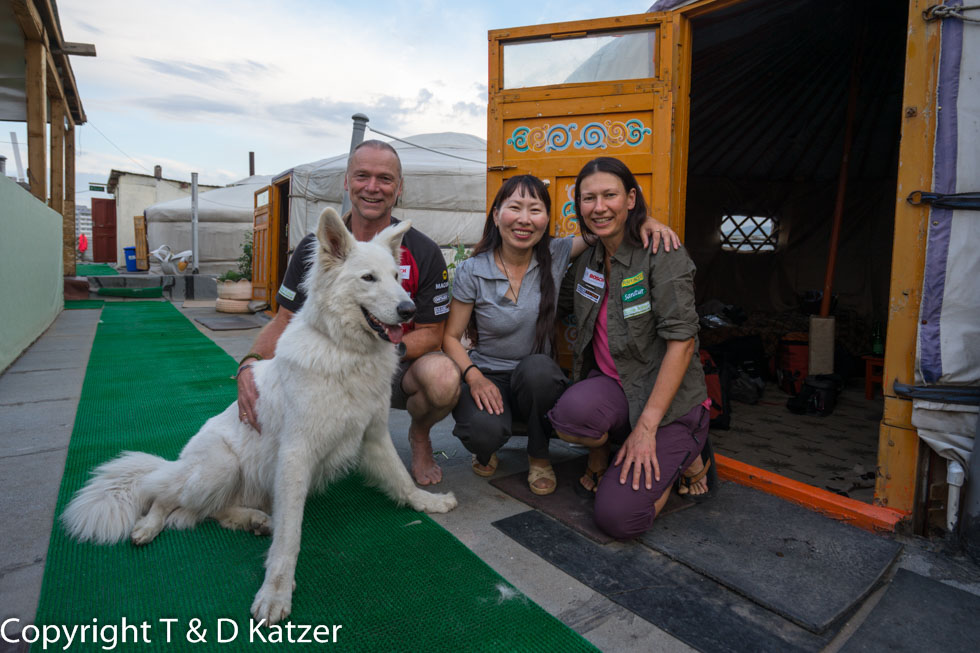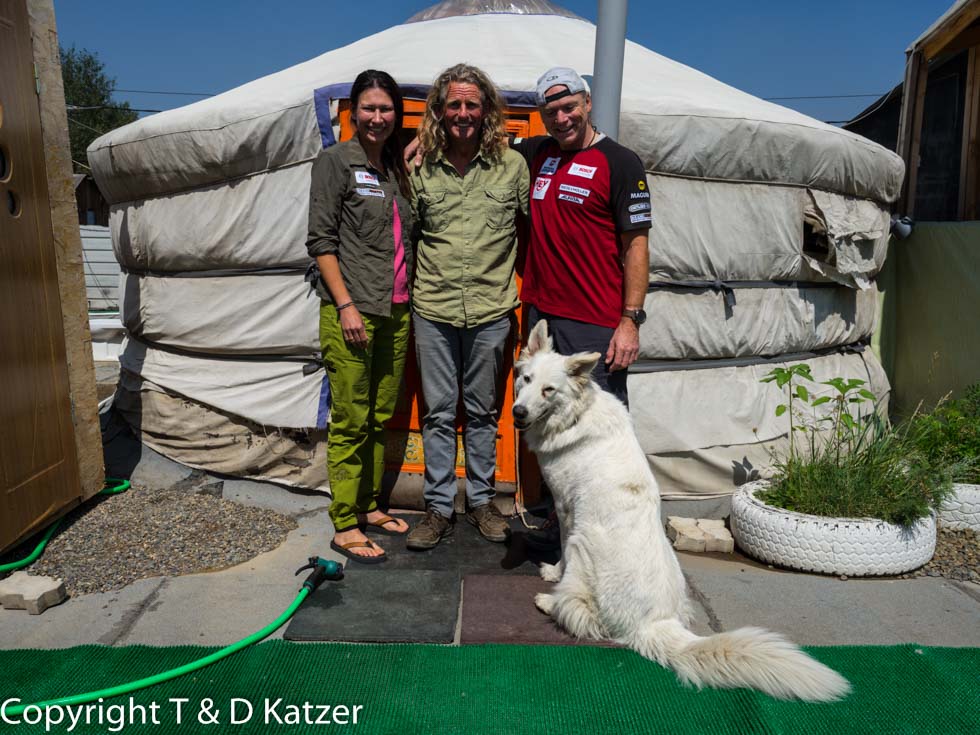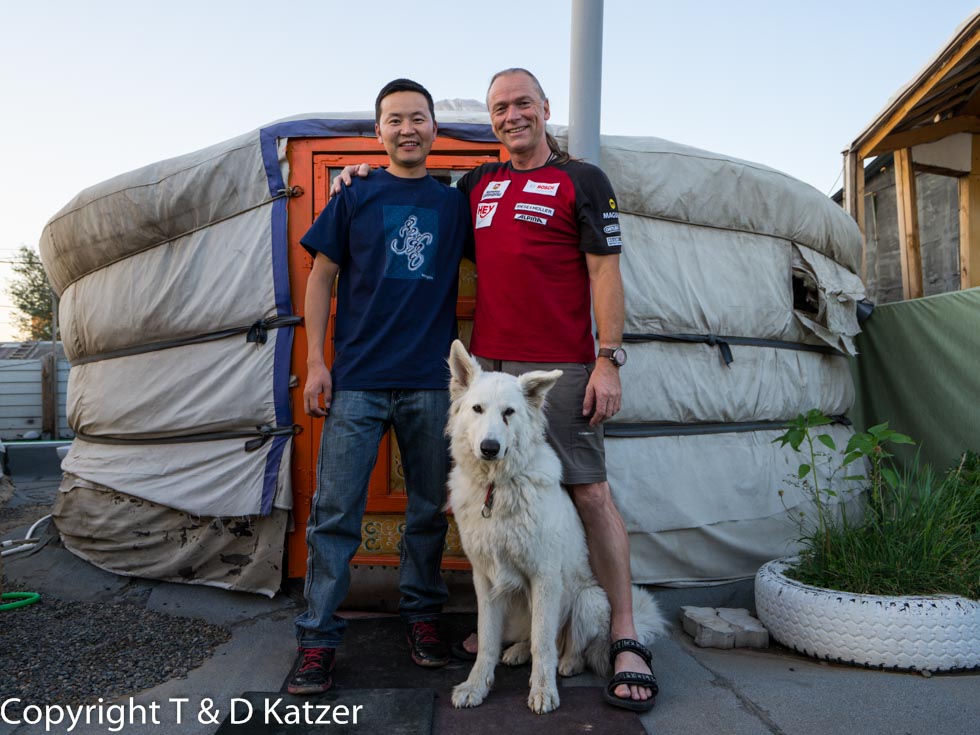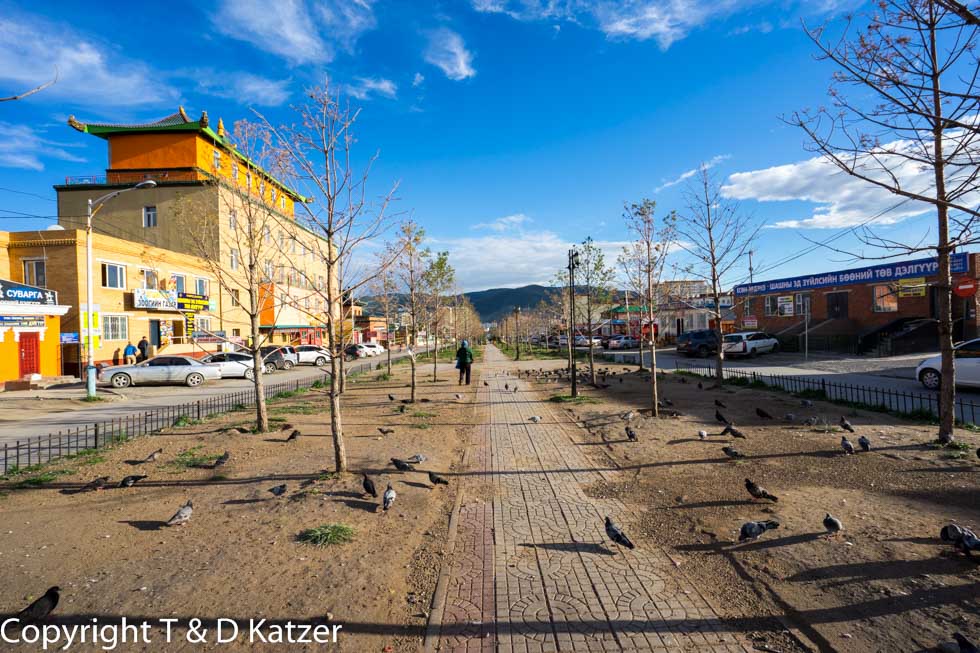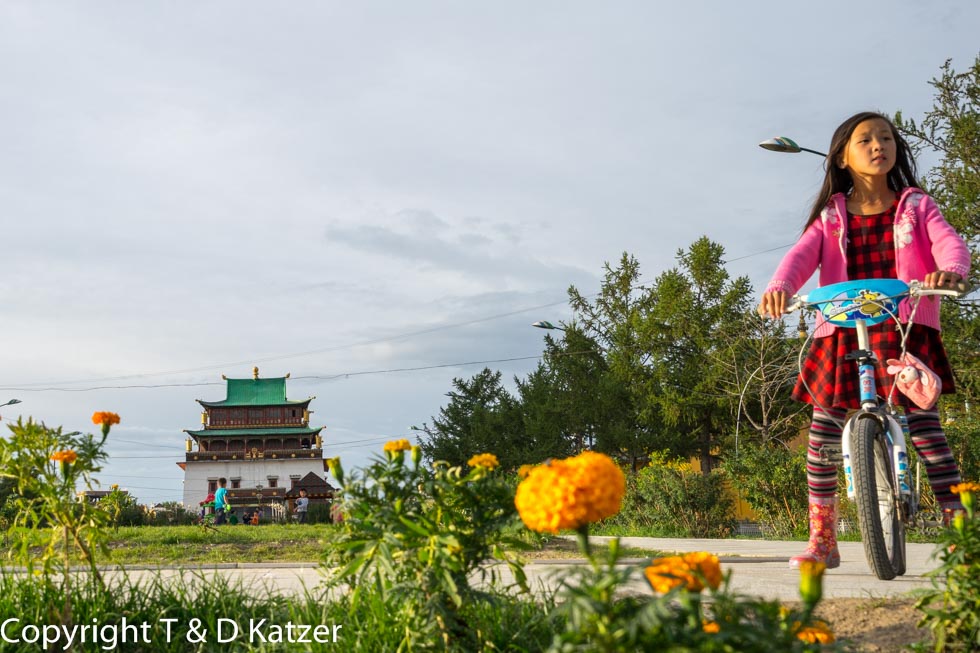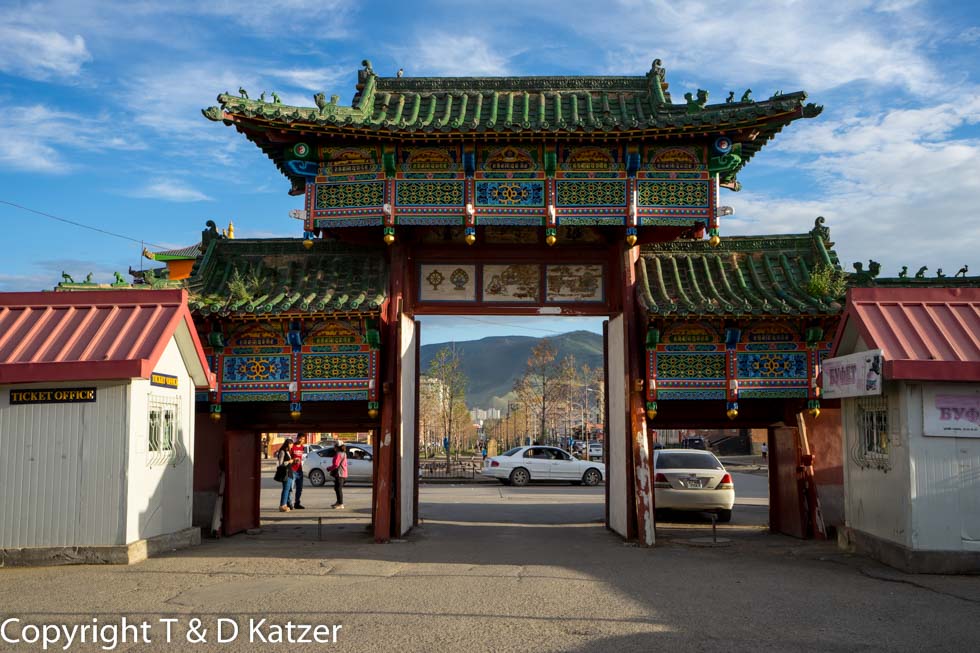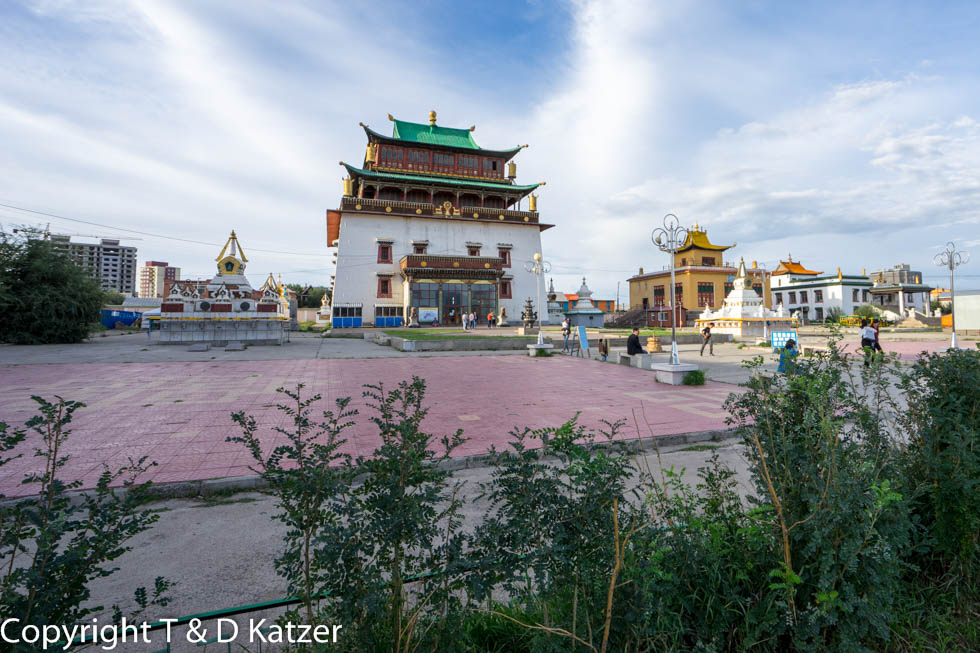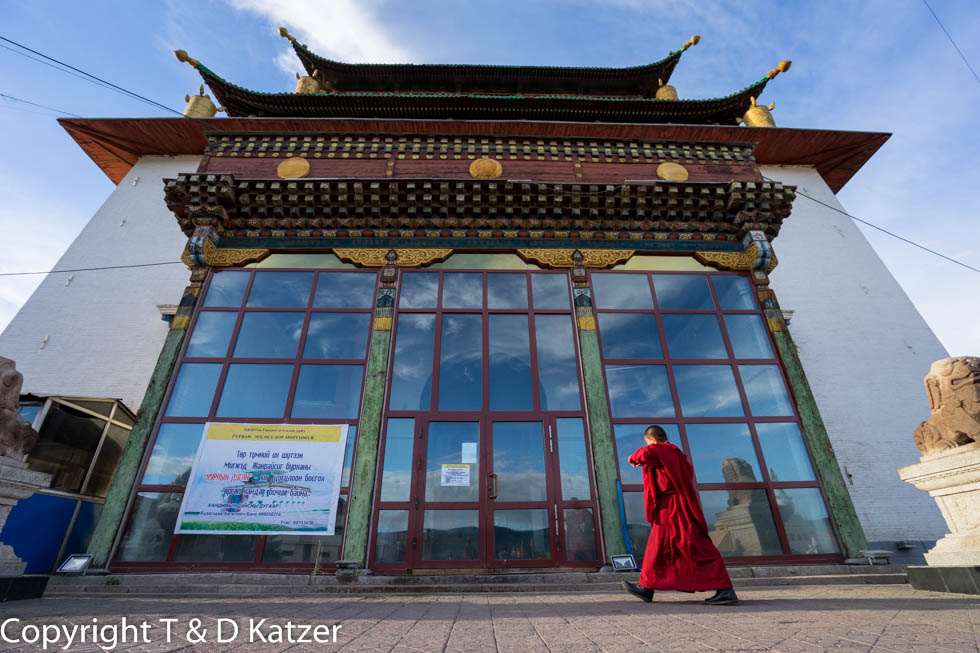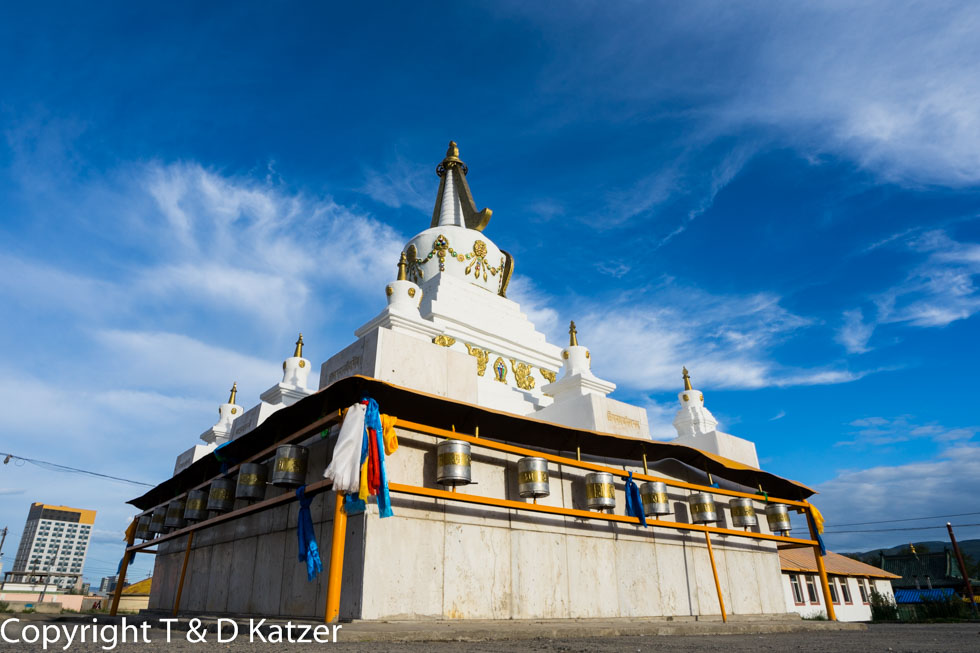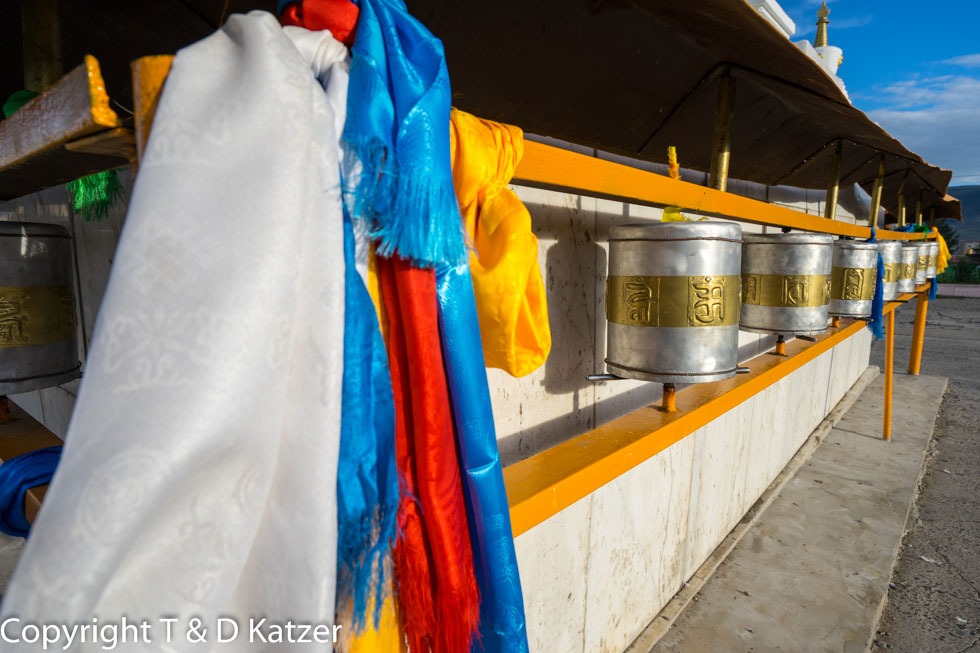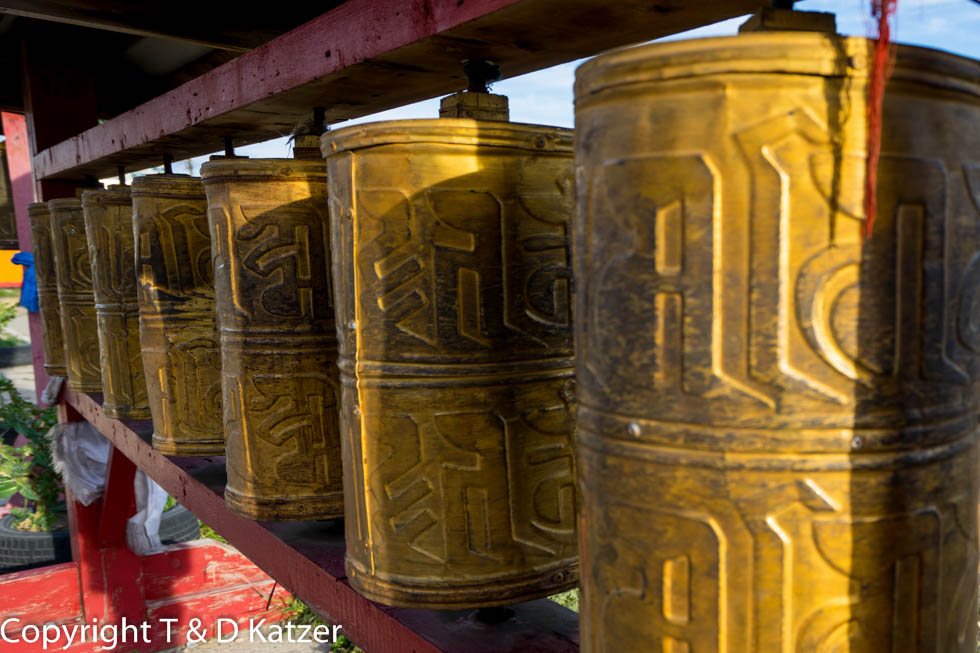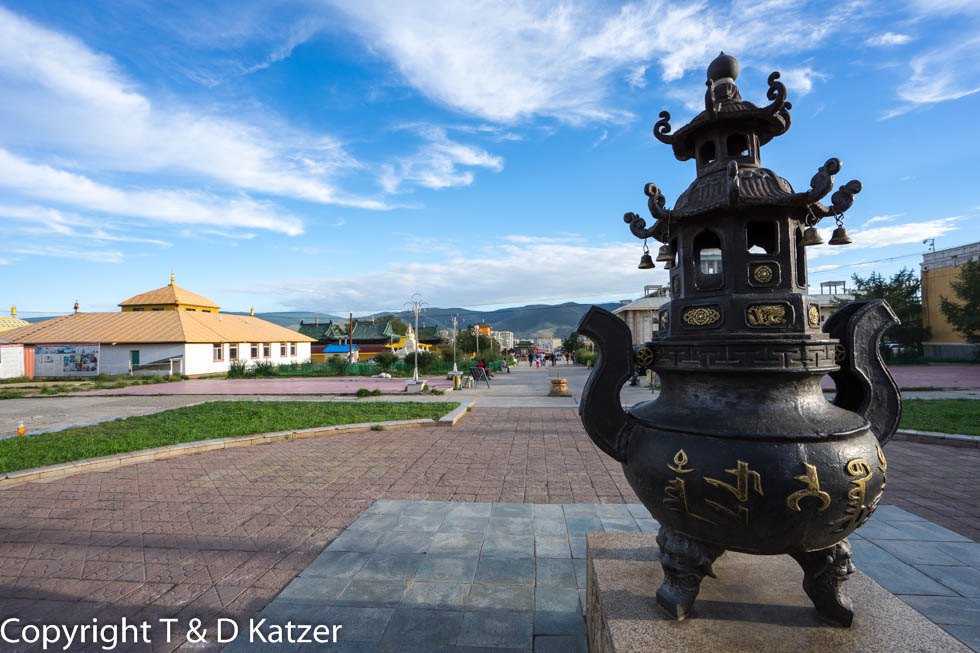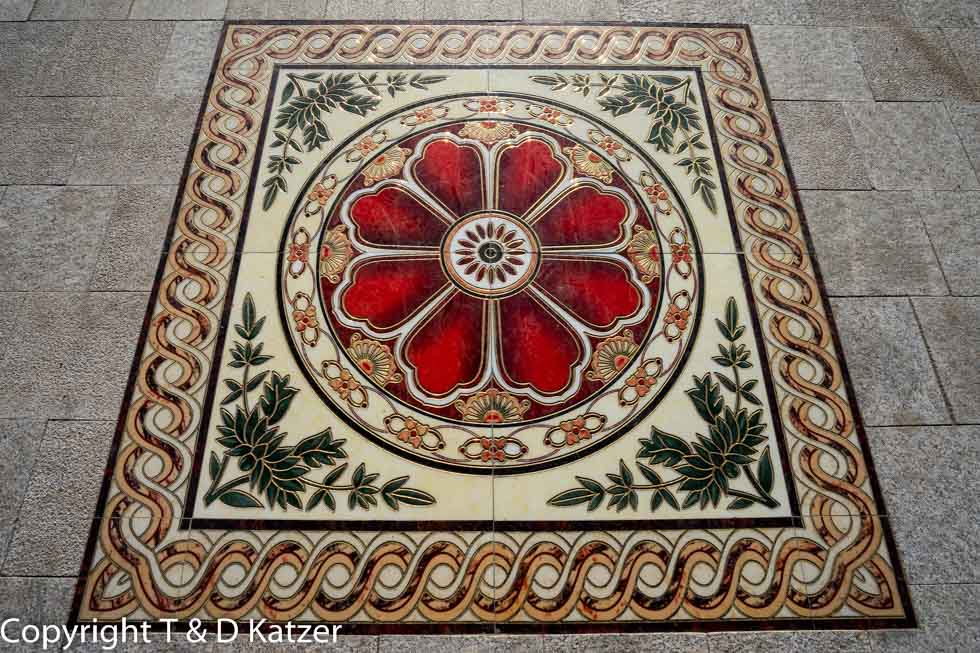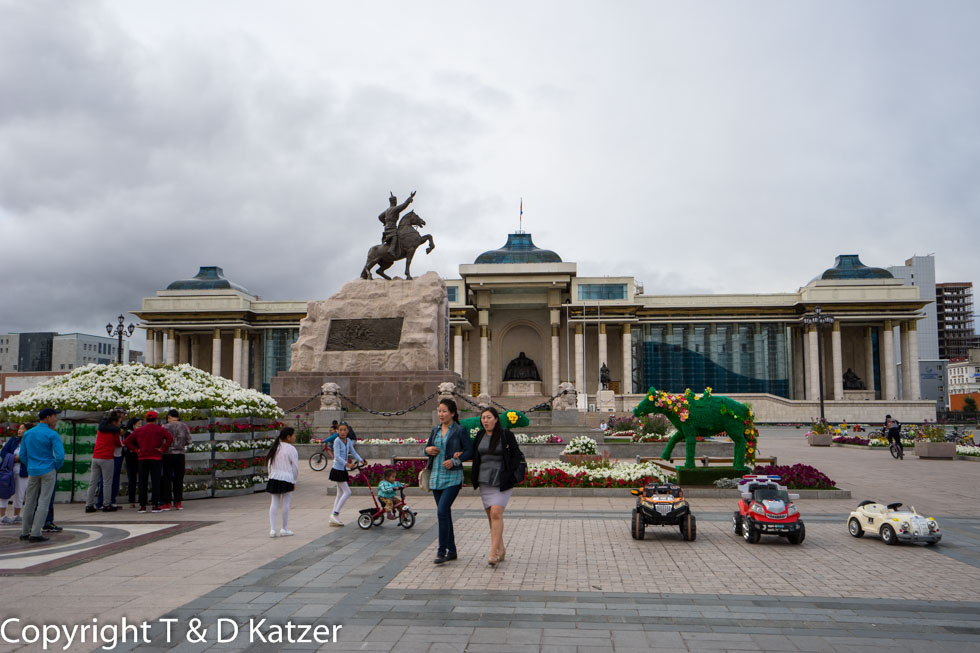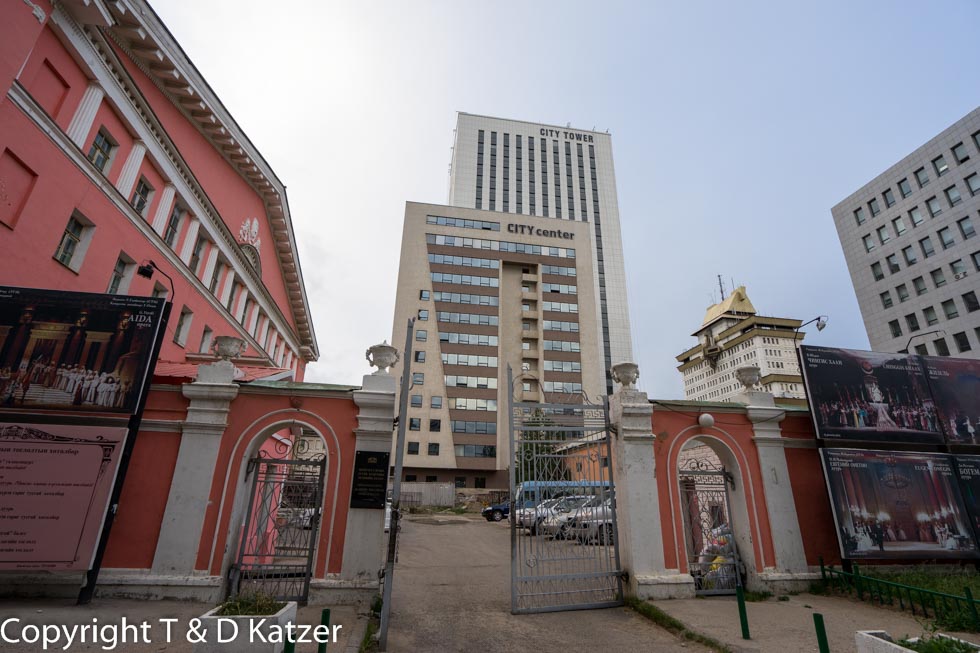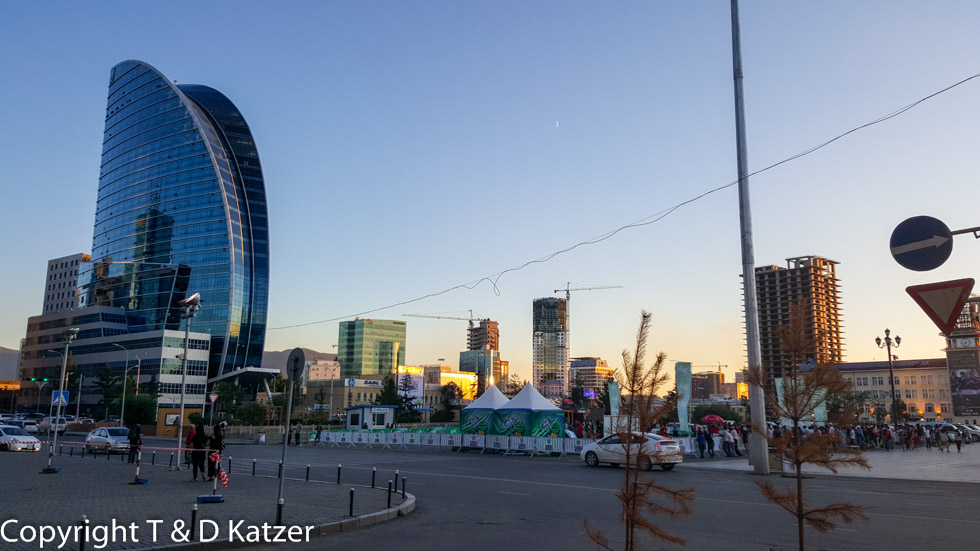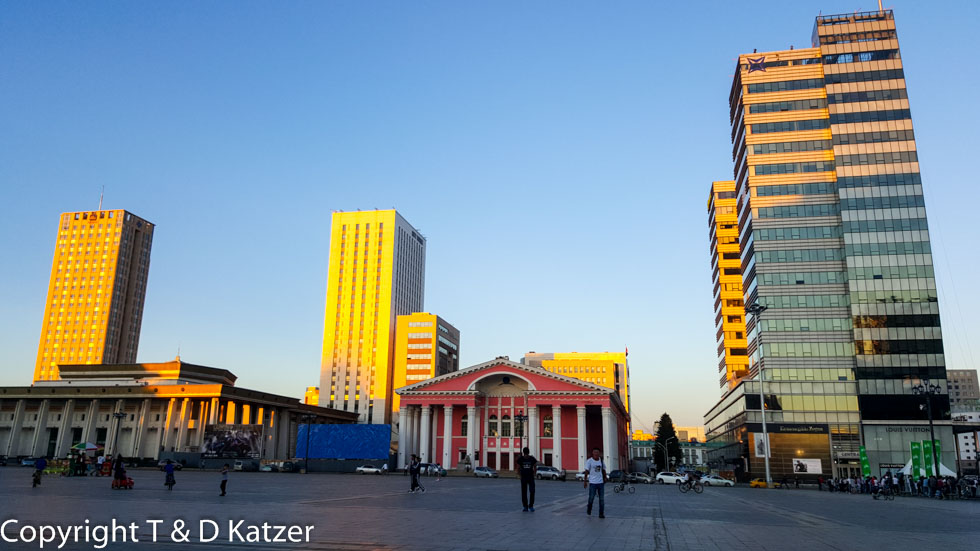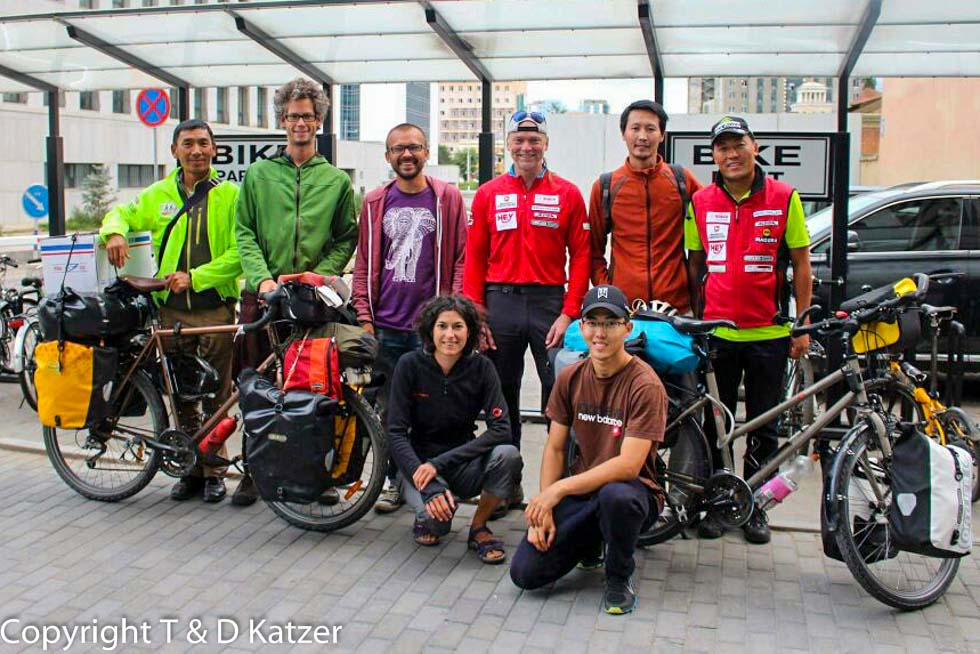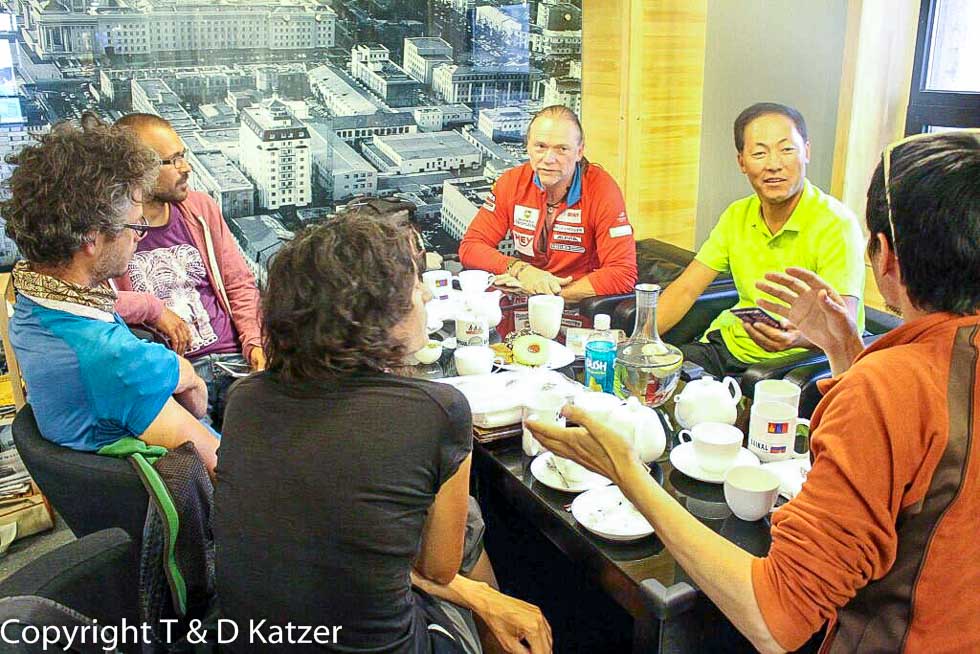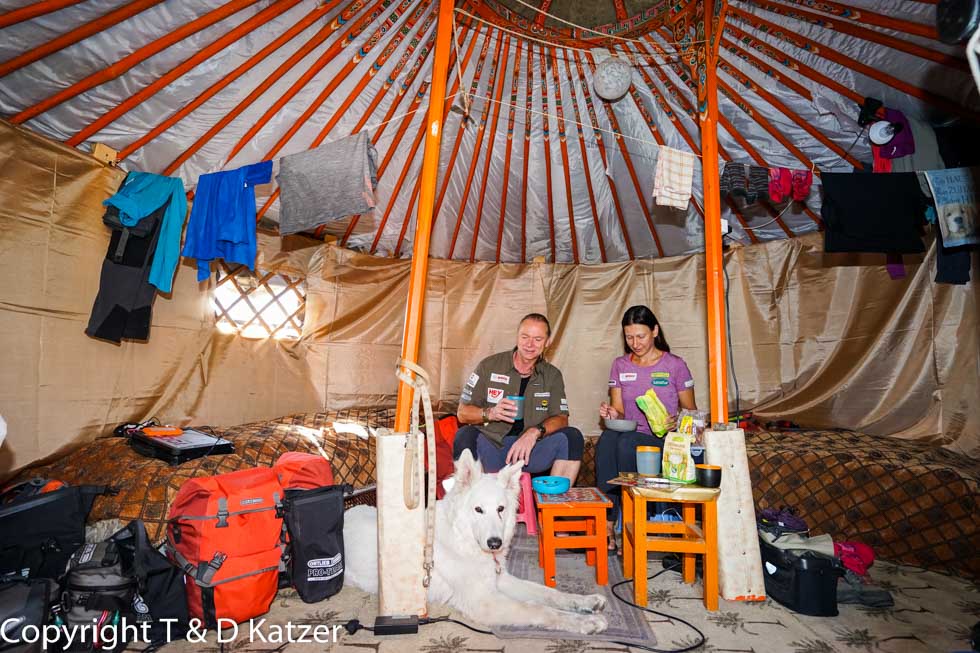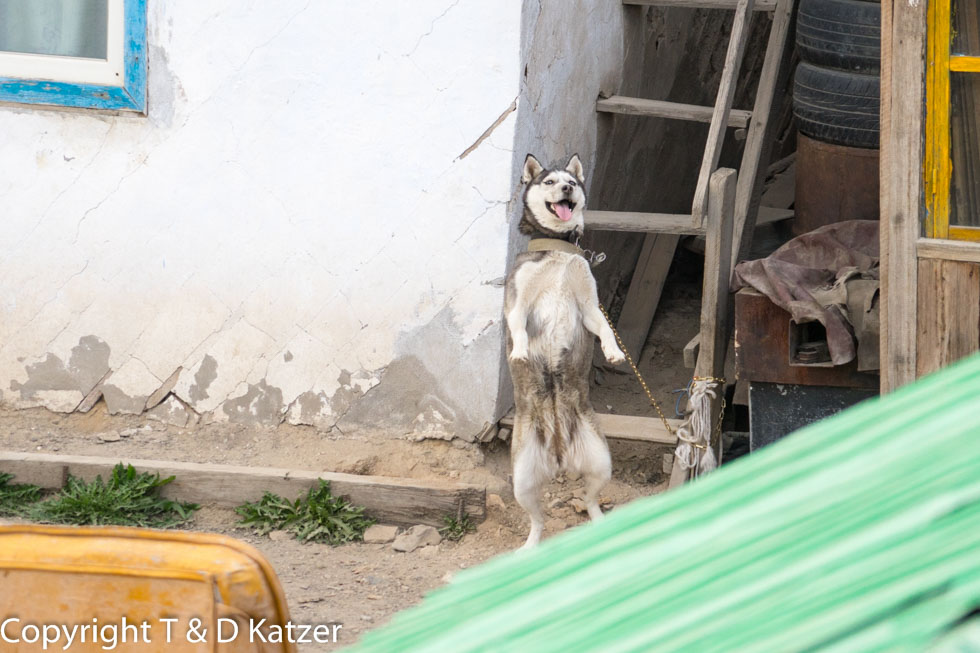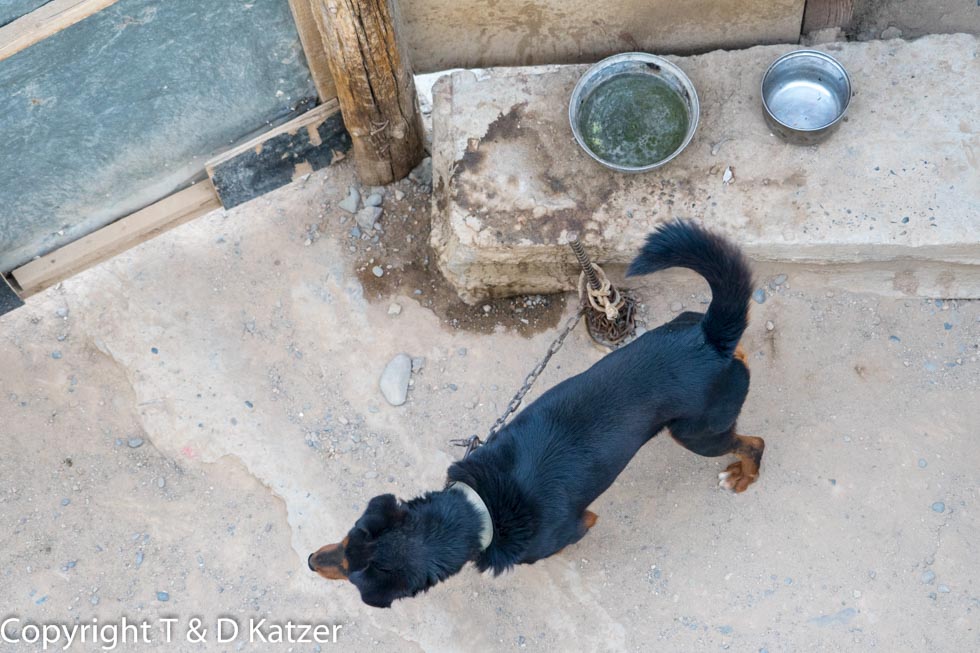
A world of contrasts, thieves, beggars and the super-rich
N 47°55'08.9'' E 106°53'50.1''
Date:
12.8.2015 to 26.08.2015
Day: 45 – 59
Country:
Mongolia
Location:
Ulan Bator
Latitude N:
47°55’08.9”
Longitude E:
106°53’50.1”
Total kilometers:
8,563
Height:
1308 m
Sunrise:
06:41 am – 06:57 am
Sunset:
9:13 pm – 8:52 pm
Temperature day max:
32 degrees
Temperature day min:
14 degrees
(Photos of the diary entry can be found at the end of the text).
We don’t actually want to stay long in U.B. (short for Ulan Bator) but there is much more to do than planned. Our Mongolian friend Togtoch, who put us in touch with the provincial government in Khovsgol, visits us in our yurt. We talk animatedly for many hours. The next day, she helps us buy a new smartphone. We learn that cheap duplicates are often sold that cannot be distinguished from the original in the slightest. They sometimes cost only slightly less than the original, but are of extremely poor quality. “And what’s the difference between this phone and that one?” I ask the saleswoman, pointing to the identical-looking models. “You get a one-year international guarantee on the original, but I can’t give you a guarantee on the duplicate.” “Hm, but you could pass off the duplicate as the original, couldn’t you?” I ask. “But I can’t give you an international guarantee on that. There is only ever one warranty card with the number of the original device,” she tries to convince me. Having already experienced the unbelievable in this country and knowing that the locals come up with excuses you wouldn’t dream of, we remain suspicious. When I sign the warranty card and hand her the money, she suddenly wants 300,000 Tugrik (€135) more than agreed. Togtoch, Tanja and I can’t believe it. Have we been tricked again despite all our caution? “The price was for the duplicate and not for the original,” the resourceful saleswoman defends herself. Togtoch is now seriously arguing with the woman behind her small stall. Although our friend speaks perfect German and translates everything we don’t understand one-to-one, the extremely arduous process of buying this smartphone takes three hours. In the end, I’m no longer sure whether I’m really holding an original in my hands for this horrendous amount of money. “I’m convinced it’s an original,” says Togtoch, who is currently completing her Russian doctorate in history.
Our translator at the time, Taagi, doesn’t miss the opportunity to say hello and come over for an evening. Roelof the Dutchman, who has made Mongolia his adopted home, also visits us. After spending the winter with the reindeer nomads, we lived for two weeks in his small apartment in U.B. His wife at the time, Anu, accompanied us in Roelof’s jeep as a translator on a trip of several thousand kilometers through southern Mongolia. Roelof and Anu didn’t ask for a single cent apart from gas money and accommodation costs. One more reason why the kind-hearted, generous Roelof will remain an unforgettable memory for us. During our conversation, he tells us everything that has happened in the two years of our absence. “The country is now suffering from a genuine crisis. The major international investors in the mining companies have pulled out. The government has fallen out with them. Unemployment is astronomical. The country is absolutely bankrupt. It is assumed that Mongolia will be insolvent by 2017 at the latest. Just like Greece at the moment. Nobody knows what will happen here then.” “Is that probably also a reason for the pickpocketing boom?” I ask. “Absolutely. Pickpocketing and burglary have become rampant. No one is safe anymore. A friend of mine occasionally has bike travelers from Europe staying overnight. His guests set up their tent in the courtyard and slept next to their bikes. They were gone the next morning. That happened just a few days ago.” “Terrible, I hope we are spared such a theft. After my smartphone was stolen, I warned many of the travelers here. And you won’t believe it. Every third person in this guesthouse has been a victim of pickpocketing. Some have even had their passports stolen, one has had their tablet stolen and no one has noticed. Our ex-translator Taagi, who is Mongolian and lives here, has had ten cell phones pinched in the last ten years and our friend Togtoch was caught a few weeks ago when she wanted to buy something in a store,” I say. “Oh yes, they’ve become very skillful. They usually work in pairs, sometimes in groups. If one person pulls something out of your rucksack or trouser pocket, they immediately pass it on to another person. By the time you notice something and turn around, the person has long since lost your wallet or whatever it was that they got hold of. The guys are therefore difficult to catch,” explains Roelof
The technical challenges also continue and U.B. is the last major city before China, where we can take care of the most important and necessary things before we set off on the 700-kilometer route, most of which leads through the Gobi Desert. So we need a cloud that we download from the World Wide Web to back up the wealth of images that we take on this eventful journey. Because the Chinese block all Google services and Facebook through a firewall, we need a special server to bypass this block. This is the only way we can continue to guarantee our reporting and the security of the images in the cloud. Researching online and installing such programs is extremely time-consuming and sometimes nerve-wracking for me. Well, times have changed for travelers and adventurers too. Nothing works today without high-tech, digital cameras, laptops, smartphones, etc. You could fight it, but that would mean absolute isolation from our world. And what sense does it make to isolate yourself from the world you live in? When we spent four years in the Australian outback, three of which were spent isolated from the outside world, crossing 7,000 kilometers of the continent’s deserts with our camels, we were forced to dive back into the world of technology. It took me a year to get used to the stress and rapid development after the ultimate adventure. But I would have preferred to flee. With the inevitable result, however, of having to wander through the deserts like a nomad with our camels for the rest of my life, just to avoid participating in the progress of mankind today.
Life in our yurt on the roof of a shabby building, which has been one of Ulan Bator’s first traveler accommodations for over 20 years, is slowly becoming routine. Tanja takes Ajaci for her morning round before breakfast. “Imagine what happened today,” she says, a little out of breath as she enters our Mongolian dwelling. “Nothing bad, I hope?” I reply anxiously. “Well, you name it. A highly aggressive dog attacked us.” “What? How did that happen?” “You know the path that leads away from the Gandan monastery, don’t you?” “Which path?” I ask, because there are several. “Well, down the main road to town.” “Yeah okay, I know it.” “Well, Ajaci and I were walking peacefully along this path when a dog charged at us like a wild animal. I immediately bent down and threw a stone at him. However, he wasn’t impressed and continued to shoot at us like an arrow. It all happened so quickly. The wild one bit Ajaci on the butt and had a big ball of fur in his mouth. I screamed at him with all my might and he backed off a bit and tried to choke out Ajaci’s fur. Then he attacked again. I kicked at him. Luckily he didn’t catch me because his mouth opened and closed like a crocodile. The Divine Ray sent two men to help me. They threw fists full of small stones at the mutt, which is why he finally pulled the leash. One of the men followed him to make sure he didn’t come back. Then I thanked our rescuers and examined Ajaci. Because of his thick fur, he was completely unharmed.” “Phew, lucky,” I reply thoughtfully. “There are an incredible number of dogs in this area. Some of them run around freely and defend their territory. You really have to watch out when you’re doing your night rounds with Ajaci. It’s best to always have stones in one hand and pepper spray in the other,” she warns me.
Dogs have always been part of the family in Mongolia and are welcome pets. They have been announcing every visitor and protecting and warning against thieves since time immemorial, but have now also become a real status symbol. Foreign breeds such as huskies and German shepherds in particular have won the hearts of Mongolians. Top prices are paid for the four-legged friends, which is why we were warned several times to watch out for Ajaci. “Don’t leave your dog waiting for you outside a store or anywhere. If you’re not careful, they’ll steal it from you.” The poor animals are often kept on a chain that is no longer than one meter. Although Mongolians like their dogs, this kind of cruelty to animals is incomprehensible. A husky howls 24 hours a day right next to our yurt camp. His chain, from which he is never released, measures no more than one meter. The poor man screams his head off incessantly. When you consider that huskies are real endurance runners and can pull loaded sledges with great joy, our hearts clench at the sight. We would love to set him free. But that wouldn’t help, of course. The dog from Ganas Guesthouse has been on a chain that measures only about 50 centimeters for years. He barks his despair into the sky all night and tries to bite anyone who comes near him. He was not released once during our entire stay. As he is forced to poop in his own nest due to the chain, his mistress, the guesthouse owner’s mother, cleans up his excrement. Apart from his food, this is the only luxury of his miserable prison life. We talk to the owners about this problem and try to achieve an improvement for the dog. “That’s quite normal in Mongolia. That’s how it’s done here. Besides, he’s been on the chain for four years. If we let him go now, he’ll bite every guest,” is the statement.
Between researching, talking to the travelers present, chatting with our visitors and the many other tasks that life demands, I sit in our yurt in the loud street noise, bad air and sometimes monkey heat and write about our experiences. At lunchtime we always go to a friendly Mongolian restaurant where the meals taste very good and are not expensive. After a week, however, the Mongolian bake catches me again. Abdominal cramps, nausea and a lot of time on the toilet are the consequences. I can no longer tolerate all that often fatty meat. Apart from that, Mongolians cook with cheap sunflower oil, which is repeatedly heated in some restaurants until it mutates into pure poison. Other travelers tell us about a vegan restaurant. “And that in U.B.?” I ask. “Yes, it’s actually not far from here. You can eat delicious food there,” explain Jola and Simon, a young couple who have just returned from a ten-day horse trip and have rented a room in the yurt opposite us.
We are on our way to the vegan restaurant where we will enjoy our lunch for the next ten days. A young Mongolian businessman in a fine suit walks ahead of us. He has headphones in his ears and is obviously listening to music. He carries his leather shoulder bag casually on his right side. An acquaintance of his appears to be walking next to him. However, unlike him, he wears simple clothes. As if it were the most natural thing in the world, he takes his peaked cap off his head, holds it over his right hand and, disguised in this way, raises it to the height of his shoulder bag. “He’s not taking anything out of his pocket, is he?” asks Tanja, quick-witted. “What?” I ask. Just a fraction of a second later, the man with the peaked cap is jostled by another passer-by. The two speak loudly, apologize to each other, shake hands and laugh boisterously, while the businessman continues to listen to his music, unaware that he has most likely just been robbed. Tanja and I stand there a little confused and only realize at this moment that we have witnessed a pickpocket. The person bumped into has passed on his booty to the person he bumped into. “I don’t believe it. So that’s how they do it,” says Tanja. “Yes, at least that was one option,” I say. Just a breath later, the two thieves are lost in the crowd. The businessman also walked on. So there is no point in rushing after him to tell him that he has just become a victim.
As we sit in the Loving Hut and enjoy our delicious vegan meal, we talk for a while about the brazen theft. “Ulan Bator is now comparable to cities like Rome, Madrid, London and many tourist hotspots, at least when it comes to organized pickpocketing,” I say as my new smartphone suddenly rings. It is Khadbataar, the agency boss who cycled around Lake Khovsgol in the north of the country with Korean bicycle tourists and had asked us to contact him when we were in U.B.. After I got hold of my phone, I didn’t even think about the man who had obviously tried to reach us several times. “What does he want from us?” asks Tanja quietly. “We should visit him in his bike store,” I say as I hold the phone to my ear. “Are you free tonight?” “Yes,” I hear myself reply, even though we don’t feel the slightest inclination to meet the boss of a bicycle tourist store at the moment.
18:30. We stand in front of the main post office and wait for a Khadbataar employee to pick us up. “I’d really like to go into our yurt and rest a bit,” says Tanja after we’ve been waiting for ten minutes and don’t know why we should visit this man. “I wonder what he wants from us,” I wonder. “I just know that hardly any Mongolians want to invite you just like that. There’s always a reason. Either to establish a business relationship, an invitation to Germany or maybe he just wants to sell us something,” Tanja replies. Suddenly a young, pretty Mongolian woman waves to us from the other side of the road. “My name is Saara and I am the secretary to Khadbaatar Radnaa, the General Manager of the City Center,” she introduces herself in a friendly manner. We follow it through the spacious city center of Ulan Bator. Then we cross the imposing Suchbaatar Square, where the impressive parliament building and the opera house are located. The stark contrast between wealth and poverty can be seen here, for example, when you walk past the partially open sewage shafts. We peer curiously into one or two shafts. They are filled with garbage and are home to the poorest people in the metropolis. During our last stays in the U.B. we were able to observe how children in ragged clothes, their bare feet stuck in broken slippers, crawl into such holes. During the cold season, 4,000 to 10,000 children live in the heating tunnels of Ulan Bator. According to some statements, however, there should be another zero after these figures. The unimaginable thing is that these poor human beings have to share the dark habitat with millions of rats and the floor of these tunnels is covered in excrement. Knowing that an underground city exists beneath our sidewalk, home to countless suffering young people, we are constantly haunted by a guilty conscience when we go to a restaurant to satisfy our hunger with good food.
“Here we are,” Saara interrupts my thoughts as we arrive at a modern 30-storey high-rise in the middle of the city center. “And the bike store is in there?” I wonder. “Yes,” answers Saara and leads us into the elegant building. Next to the lobby, we pass a small bike store where ultra-modern bikes and equipment are on display. Then we enter a classy restaurant. “But we’re not going to invite him,” Tanja says quietly. “No, why should we invite him?” I reply as Khadbaatar approaches us and shakes our hands in a very friendly manner. “Have a seat. Do you want something to eat? Are you hungry? Maybe some fresh pastries? Fruit? Or something from the buffet?” We can’t believe our ears. “Uh, we’ve just eaten,” we reply, a little embarrassed. “But you can always have a cappuccino,” he laughs and tells the waitress to serve us one. As real cappuccino is extremely rare in this country and at least as expensive as in a good restaurant in Germany, we once again can’t believe our ears. “And you’re the boss of the bike store at the entrance there?” I ask. “Ha, ha, ha, yes, that’s me. But I’m also the boss and owner of the two high-rise buildings here. I have an architecture and engineering office here in the building. I’m a building contractor. The bike store is just a small side business that we’re just setting up,” we’re struck dumb again. “Wow, you’re a rich man then,” I say, to which our host just smiles kindly. As soon as the cappuccino is served, the boss of the City Center Building jumps up, hurries to the buffet and brings us fresh, delicious pastries with his own hands. “How you can always fool yourself,” I whisper to Tanja, sinking my teeth into a tasty croissant. Sitting at the table with us is a friendly Russian called Alexeij. A round-the-world cyclist who has been on the road for over a year and has just arrived from China. Niem has taken a seat next to him, a nice Mongolian who speaks perfect German and offers cyclists from all over the world a free place to stay for the night via Warm Showers. (The Warm Showers community is a free, worldwide hospitality exchange for touring cyclists).
“I’ve only known Mr. Radnaa for a few minutes. It’s pure coincidence that I’m here,” explains Niem. It doesn’t take long before we are joined at the table by two more cyclists who Khadbaatar also generously invites without hesitation. The couple from French-speaking Switzerland also only recently arrived at Niem. “And how did you get into this noble house?” I ask Niem. Alexeij met Mr. Khadbaatar Radnaa on the street and was invited here by him today. I accompanied Alexei here because he didn’t know where the city station was. My two Swiss guests also followed us because they heard that there was a bike store here where they might be able to buy something,” he explains. “Yes, what a coincidence. Now we have an international meeting of world cyclists,” says Khadbaatar happily and continues to serve up dishes that would not only please the hungry stomachs of cyclists. It doesn’t take long for the interesting conversations and exciting stories to dominate the early evening. Alexei needs a new coat for his old touring bike. Khadbaatar immediately has one brought by an employee. When Alexei hears the price, he looks embarrassed. “What’s wrong? Is there something wrong with the coat?” asks the owner of the tower block. “I’m sorry, but it’s too expensive for me,” Alexei replies. “What would you like to pay?” asks Khadbaatar. “I can only pay half the price. That’s how much a coat costs in China. I know this one is better quality, but I can’t afford it,” he says. “Well then, pay me half”, Khadbaatar offers the Russian, whereupon I am annoyed at the hasty conclusions I had drawn towards our host just a few hours ago. Things always turn out differently than you think and we usually judge or condemn people without knowing the slightest thing about them.
We talk shop about the different bike techniques and I mention that I forgot an altimeter this time. “What do you need an altimeter for?” wonders Khadbaatar, who is passionate about cycling. “I have an altimeter in my watch. That’s not a problem. What I need is an altimeter that also accumulates the altitude meters. For many cyclists, it’s not just about the kilometers covered but also the meters of altitude climbed. At the end of a trip, you then know how many thousands of meters of altitude you have covered. I would like to include that in my logbook,” I explain. “Hm, interesting. Unfortunately, we don’t have anything like that in the store, but my son can get you one of those on the Internet. If the little computer doesn’t suit your needs, I’ll buy it, so no problem for you,” Khadbaatar offers me.
“Money isn’t everything in life,” says Khadbataar abruptly when everyone else has already left. “Yes, I know. That’s one of the reasons why we chose this wonderful life of travel,” I reply, agreeing with him. “A few years ago, we had serious unrest in the country,” Khadbataar continues. “Many people demonstrated at Sukhbaatar Square. One group stormed up to my tower blocks. It wasn’t long before one of them was ablaze. The commercial building that had just been built next to it also went up in flames. After just 30 minutes, my life’s work was destroyed. Simply destroyed. Do you understand? All my wealth gone. Just because a few idiots wanted to take their aggression out on something. This experience fundamentally changed my life. I’m glad to have made it back, but I know the other side of life. That’s why I cherish every day.” “I can understand that. Tanja and I also try to appreciate every day as if it were the last. Unfortunately, that doesn’t always work,” I say thoughtfully. “Unfortunately,” replies the building contractor, who I see with completely different eyes after this story. “And how is it that your buildings are standing again now?” I want to know. “The government helped us. We did the rest with a lot of energy and hard work.”
After a wonderful evening, great conversations, fantastic food and exceptional hospitality, I stroll through dark Ulan Bator. Tanja went back hours ago to do the evening round with Ajaci. So I am alone and, despite the wonderful experience, very vigilant in a world of contrasts, thieves, beggars and the super-rich.
The live coverage is supported by the companies Gesat GmbH: www.gesat.com and roda computer GmbH www.roda-computer.com The satellite telephone Explorer 300 from Gesat and the rugged notebook Pegasus RP9 from Roda are the pillars of the transmission.
